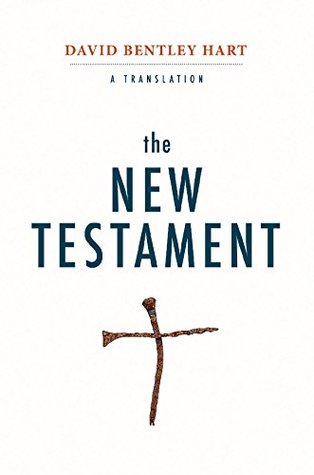More on this book
Community
Kindle Notes & Highlights
to the dead
4Whereby he has given us his precious and majestic promises, so that through these you may become communicants in the divine nature, having escaped from the decay that is in the cosmos on account of desire.
the faith delivered once and for all to the holy ones.
translating the grace of our God into wantonnessb
Jesus,
the error of Balaam,
the sedition of Korah.
19These are those who cause divisions, psychical men, not possessing spirit.k 20But you, beloved ones, building yourselves up in your most holy faith, praying in a holy spirit, 21Keep yourselves in love of God, awaiting the mercy of our Lord Jesus the Anointed for life in the Age. 22And have mercy on those who suffer doubt, 23Yet also save them by seizing them out of fire; but have mercy on them in fear,l hating even the inner tunic stained by flesh.
The most common interpretation of this phrase is that there were men teaching an antinomian form of faith, according to which grace so liberates the saved from the prescriptions of the Law that even its restrictions on sexual behavior can be set aside.
the best textual evidence favors “Jesus.”
I have also allowed my thinking on certain terms to be shaped by—in addition to the studies of many modern biblical scholars—the readings offered by certain ancient authorities who, to my mind, possessed at once all the necessary attributes of trustworthy exegetical guides: complete linguistic proficiency, penetrating exegetical insight, and genuinely redoubtable theological powers: Origen, Gregory of Nyssa, and Theodore of Mopsuestia (among others).
1.
αἰώνιος (ai...
This highlight has been truncated due to consecutive passage length restrictions.
there really are only three verses that seem to threaten “eternal punishment” for the wicked (though, in fact, none of them actually does),
there are enough instances in the New Testament where the adjective or the noun obviously does not mean “eternal” or “eternity” that it seems to me unwise simply to presume such meanings in any instances at all.
Greek-speaking Jewish scholars of late antiquity,
Philo of Alexandria
Josephus
John Chrysostom,
such explicit universalists as the great Alexandrians Clement and Origen, the
Gregory of Nyssa
Mak...
This highlight has been truncated due to consecutive passage length restrictions.
great Syrian ...
This highlight has been truncated due to consecutive passage length restrictions.
many other more rhetorically reserved universalists,
John of Damascus
the words aiōn and aiōnios correspond to various forms and uses of the Hebrew olam or the Aramaic alma, both of which most literally mean something at an immense distance, on the far horizon, hidden from view, and which are usually used to mean “age,” or “period of long duration,” or a time hidden in the depths of the far past or far future, or a “world” or “dispensation,” or even “eternity,” and so on;
2.
γέεννα (gehenna).
“Hades,”
“Tartarus”
“the gehenna,”
This last term appears eleven times in the synoptic Gospels (seven in Matthew, three in Mark, and one in Luke), and only once in the rest of the New Testament (in the Letter of James).
Scripture and tradition say that the Tophet was there, the place of child sacrifice for worshippers of Moloch and Ba’al, a practice attested in Leviticus, 2 Chronicles, 2 Kings, Isaiah, and Jeremiah; and while there is as yet little archaeological evidence supporting the claim, the association of the Ge-Hinnom with the sacrifice of infants to evil gods was well established long before the Christian period.
3.
Ἰουδαῖος (Ioudaios)—
4.
λόγος (logos),
5.
προορίζειν (proörizein),
“to predestine.”
6.
ἄνθρωπος (anthrōpos),
7.
ἔργα (erga),
8.
ὑποκριτής (hypokritēs)—
9.


